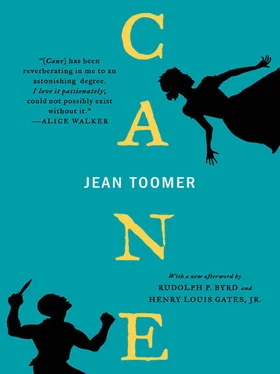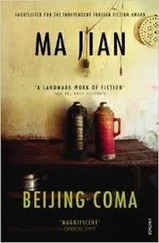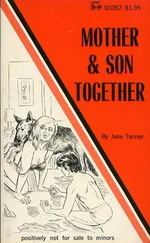My body is opaque to the soul.
Driven of the spirit, long have I sought to temper it unto the spirit’s longing,
But my mind, too, is opaque to the soul.
A closed lid is my soul’s flesh-eye.
O Spirits of whom my soul is but a little finger,
Direct it to the lid of its flesh-eye.
I am weak with much giving.
I am weak with the desire to give more.
(How strong a thing is the little finger!)
So weak that I have confused the body with the soul,
And the body with its little finger.
(How frail is the little finger.)
My voice could not carry to you did you dwell in stars,
O Spirits of whom my soul is but a little finger…
I am a reaper whose muscles set at sundown. All my oats are cradled.
But I am too chilled, and too fatigued to bind them. And I hunger.
I crack a grain between my teeth. I do not taste it.
I have been in the fields all day. My throat is dry. I hunger.
My eyes are caked with dust of oatfields at harvest-time.
I am a blind man who stares across the hills, seeking stack’d fields of other harvesters.
It would be good to see them…crook’d, split, and iron-ring’d handles of the scythes. It would be good to see them, dust-caked and blind. I hunger.
(Dusk is a strange fear’d sheath their blades are dull’d in.)
My throat is dry. And should I call, a cracked grain like the oats…eoho—
I fear to call. What should they hear me, and offer me their grain, oats, or wheat, or corn? I have been in the fields all day. I fear I could not taste it. I fear knowledge of my hunger.
My ears are caked with dust of oatfields at harvest-time.
I am a deaf man who strains to hear the calls of other harvesters whose throats are also dry.
It would be good to hear their songs…reapers of the sweet-stalk’d cane, cutters of the corn…even though their throats cracked and the strangeness of their voices deafened me.
I hunger. My throat is dry. Now that the sun has set and I am chilled, I fear to call. (Eoho, my brothers!)
I am a reaper. (Eoho!) All my oats are cradled. But I am too fatigued to bind them. And I hunger. I crack a grain. It has no taste to it. My throat is dry…
O my brothers, I beat my palms, still soft, against the stubble of my harvesting. (You beat your soft palms, too.) My pain is sweet. Sweeter than the oats or wheat or corn. It will not bring me knowledge of my hunger.
1
On the school gymnasium floor, young men and women are drilling. They are going to be teachers, and go out into the world…thud, thud…and give precision to the movements of sick people who all their lives have been drilling. One man is out of step. In step. The teacher glares at him. A girl in bloomers, seated on a mat in the corner because she has told the director that she is sick, sees that the footfalls of the men are rhythmical and syncopated. The dance of his blue-trousered limbs thrills her.
Bona: He is a candle that dances in a grove swung with pale balloons. Columns of the drillers thud towards her. He is in the front row. He is in no row at all. Bona can look close at him. His red-brown face—
Bona: He is a harvest moon. He is an autumn leaf. He is a nigger. Bona! But dont all the dorm girls say so? And dont you, when you are sane, say so? Thats why I love — Oh, nonsense. You have never loved a man who didnt first love you. Besides—
Columns thud away from her. Come to a halt in line formation. Rigid. The period bell rings, and the teacher dismisses them.
A group collects around Paul. They are choosing sides for basket-ball. Girls against boys. Paul has his. He is limbering up beneath the basket. Bona runs to the girl captain and asks to be chosen. The girls fuss. The director comes to quiet them. He hears what Bona wants.
“But, Miss Hale, you were excused—”
“So I was, Mr. Boynton, but—”
“—you can play basket-ball, but you are too sick to drill.”
“If you wish to put it that way.”
She swings away from him to the girl captain.
“Helen, I want to play, and you must let me. This is the first time I’ve asked and I dont see why—”
“Thats just it, Bona. We have our team.”
“Well, team or no team, I want to play and thats all there is to it.”
She snatches the ball from Helen’s hands, and charges down the floor.
Helen shrugs. One of the weaker girls says that she’ll drop out. Helen accepts this. The team is formed. The whistle blows. The game starts. Bona, in center, is jumping against Paul. He plays with her. Out-jumps her, makes a quick pass, gets a quick return, and shoots a goal from the middle of the floor. Bona burns crimson. She fights, and tries to guard him. One of her team-mates advises her not to play so hard. Paul shoots his second goal.
Bona begins to feel a little dizzy and all in. She drives on. Almost hugs Paul to guard him. Near the basket, he attempts to shoot, and Bona lunges into his body and tries to beat his arms. His elbow, going up, gives her a sharp crack on the jaw. She whirls. He catches her. Her body stiffens. Then becomes strangely vibrant, and bursts to a swift life within her anger. He is about to give way before her hatred when a new passion flares at him and makes his stomach fall. Bona squeezes him. He suddenly feels stifled, and wonders why in hell the ring of silly gaping faces that’s caked about him doesnt make way and give him air. He has a swift illusion that it is himself who has been struck. He looks at Bona. Whir. Whir. They seem to be human distortions spinning tensely in a fog. Spinning…dizzy…spinning…Bona jerks herself free, flushes a startling crimson, breaks through the bewildered teams, and rushes from the hall.
2
Paul is in his room of two windows.
Outside, the South-Side L track cuts them in two.
Bona is one window. One window, Paul.
Hurtling Loop-jammed L trains throw them in swift shadow.
Paul goes to his. Gray slanting roofs of houses are tinted lavender in the setting sun. Paul follows the sun, over the stock-yards where a fresh stench is just arising, across wheat lands that are still waving above their stubble, into the sun. Paul follows the sun to a pine-matted hillock in Georgia. He sees the slanting roofs of gray unpainted cabins tinted lavender. A Negress chants a lullaby beneath the mate-eyes of a southern planter. Her breasts are ample for the suckling of a song. She weans it, and sends it, curiously weaving, among lush melodies of cane and corn. Paul follows the sun into himself in Chicago.
He is at Bona’s window.
With his own glow he looks through a dark pane.
Paul’s room-mate comes in.
“Say, Paul, I’ve got a date for you. Come on. Shake a leg, will you?”
His blond hair is combed slick. His vest is snug about him.
He is like the electric light which he snaps on.
“Whatdoysay, Paul? Get a wiggle on. Come on. We havent got much time by the time we eat and dress and everything.”
His bustling concentrates on the brushing of his hair.
Art: What in hell’s getting into Paul of late, anyway? Christ, but he’s getting moony. Its his blood. Dark blood: moony. Doesnt get anywhere unless you boost it. You’ve got to keep it going—
“Say, Paul!”
— or it’ll go to sleep on you. Dark blood; nigger? Thats what those jealous she-hens say. Not Bona though, or she…from the South…wouldnt want me to fix a date for him and her. Hell of a thing, that Paul’s dark: youve got to always be answering questions.
“Say, Paul, for Christ’s sake leave that window, cant you?”
“Whats it, Art?”
Читать дальше











